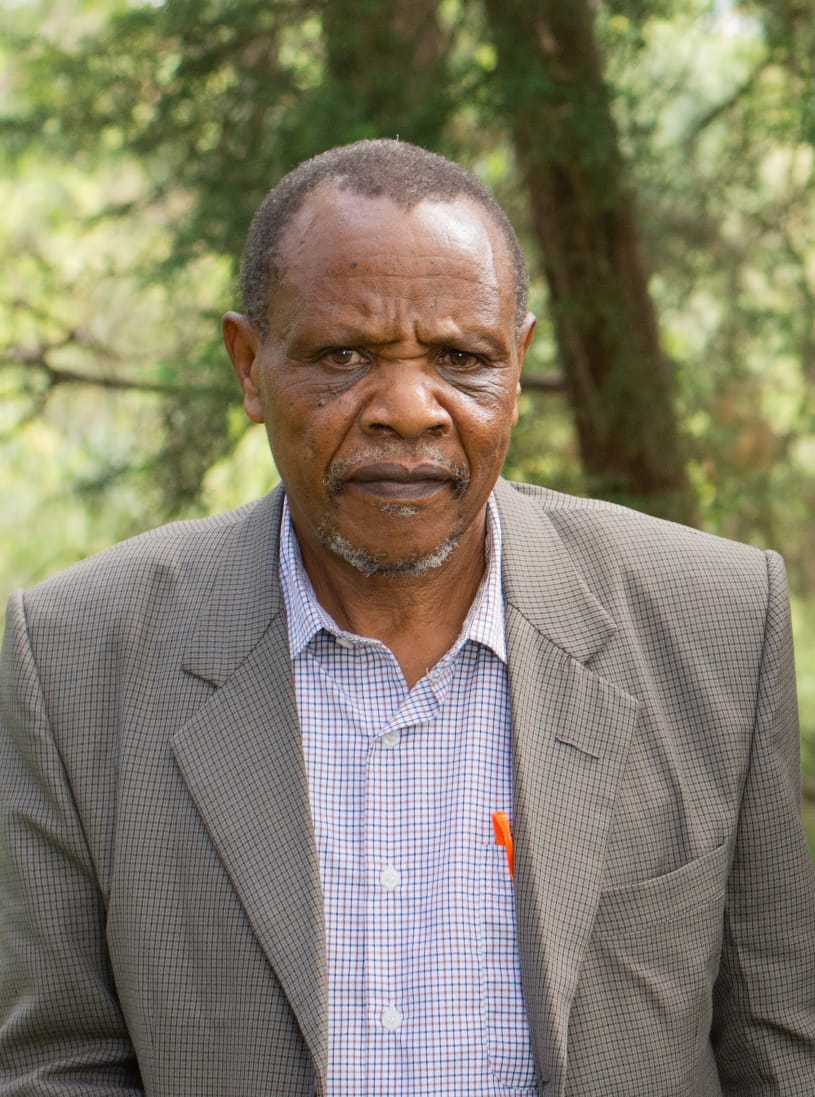The first time I met him was in late December 2018. I had just come from my former workplace at Cloudfactory (which I hated). It was his grandson’s graduation. The Chiromo air was as crisp as it could ever be. The green lawns looked tended to with some form of magical artistry. It’s like the guy who was mowing them played music on them. He was a definitely a Mozart in world of lawns. Staring at them was like listening to those 18th century symphonies from Beethoven. It was a sight to behold. We set camp, in one of the lawns, next to a slow stream swamped by tall trees.
It was a fun-filled afternoon. Everyone seemed in good spirits. There was excitement all over. The kind that maketh an extrovert feel at home and isn’t too much for an introvert. We had every reason to celebrate. A great friend, brother and son was culminating his four-year struggle of learning the law. It had been, for him, a journey characterized by intense studying of things like statute books, cases laws and policies of different civilizations. A city lawyer was in the making.
I was having some small talk with Kendi, among the many chit-chats that people had that day, when I got introduced to him. I was actually telling Kendi that “she and Dale Pascal have a striking resemblance”. She laughed it off and found it funny even. I took that as a small win since it’s not every day that a girl from Christian Union finds me funny.
I remember him having a straight posture and making eye contact that was deeply unsettling for the twenty year old that I was back then. He was Alfayo’s grandfather, Mzeee James Bakiri Oruru. He had travelled miles away from Kisii to witness his grandson being crowned a lawyer despite his frail condition. He had the kind of confidence that only a 70 year old can muster. His rheumy eyes stared longer as I introduced myself. He asked questions, this man. The kind of questions that modern people are never interested in. He asked where I hailed from, how my old folks were doing, what they did for a living and such things. And he looked genuinely interested in my response, a rare thing in the 21st century. He didn’t interrupt my answer by bringing up a story about how his own parents did barter trade in the ’30s or boast of how men of his ilk went on raids and hunting expeditions. He was certainly not interested in knowing if I had a Type-C charger or if I liked my pizza with pineapple on it.
Looking back, I have no doubt in my heart of hearts that it was one of the best interactions I had that day. The memory of him tapping his walking stick on the ground occasionally as he fussed over some idea is still alive to me. For the rest of the ceremony, he said little. He made a couple of jokes about his grandson Alfayo. Men around laughed with tumblers dangling in their hands. The ladies too registered their fascination, only in a more dramatic way. It was hard not to be amused. Mzee spoke like an alchemist. He possessed the treasure of timeless wisdom and intellect. He was deeply metaphysical despite his physical weariness. He dominated the conversations around with the sheer size of his charisma. He spiced the air with old stories that delighted his young audience. I liked the man. That was my first encounter with him. I didn’t know that it would be my last.
The rest of that day was as exhilarating as any graduation party could ever be. Drinks were tossed. Food was passed around. People bathed Alfayo in congratulations as he posed around for photos in his signature unsmiling posture. Some of his uncles recounted long forgotten and funny stories of the past. Richard Atera was somewhere making philosophical arguments as if his life depended on them. Ian was of course lost in sight, working behind the scenes to get things done as always. The rest of the people just stuck about and hushed in low tones while toasting ideas, thoughts and externalizing them in the form of animated laughters.
Two years after that day, Mzee Oruru hang up his boots of life on the Saturday of 15th August 2020.
“He was a great man” recounts Alfayo, as we have a casual conversation while taking lukewarm tea and peanut buttered bread on a Friday evening. He fights back his tears as he narrates.
The old man loved life and everything that is good about it. His taste was too exquisite for a 72 year old. Unlike his age mates who rolled around in brown checked coats and worried about things like farming wheat and tea, he carried youth into old age. He still delighted at eating muffins and simple fine delicacies such as roasted chicken and fried goat meat. He never shied away from being the best dressed guy in the room. It’s no surprise that he was a lover of expensive suits and shoes. He had a habit of spending a fortune on those. And that got him eye rolls from his wife. (It’s funny how your wife rolls her eyes at your actions even after 48 years of marriage)
He was a retired teacher but the teacher in him never left. And it never leaves in any teacher. It something they wear on their sleeves like those armors that soldiers wear to battlefield. It’s a metaphor of service to community and humanity. Mzee was the grammar Nazi who never tolerated language defilement. He’d correct any sentence misconstructions on the spot. One of his last acts on his death bed was to rebuke a hospital nurse who told him “lala na mgongo” as he underwent dialysis. He couldn’t let that slide. The teacher in him never missed out on the chance to further civilization by stating that it’s supposed to be “lala kwa mgongo”.
He had a debilitating stroke in 2006, says Alfayo. That was shortly after his retirement. That marked the start of his health complications which peaked in late 2019. The stroke weakened him but his resolve to live on was greater than the magnitude of his pain. He rebuilt his life after the stroke with the help of his family, a string of physiotherapists and by the graces of his God.
As a Christian, he found faith in the resurrection of Jesus Christ and immersed himself in the pursuit of eternal heavenly glory. He’d give short summons in church on those cold Saturday Kisii mornings and encourage young people to abandon their delights in the short term pleasures of the world. He was the kind of man that most young boys dreamt of living up to. A man who found his true north and had a sense of meaning in this meaningless world.
He had some tough days like we all do. And they were many. And ooh boy, his sunset years were filled with pain. Excruciating pain. He was diagnosed with blood cancer in late 2019. And the cancer did was cancer does best. It ravaged his fragile body with unimaginable pain. It rained misery on him. There were days when he couldn’t even tell where the pain came from. Every part of his being ached. Hospital trips started becoming a routine. The doses increased but no major improvements were registered. He had prescriptions that sometimes required him to swallow over thirty tablets at ago. A stranger seeing him on such occasions would probably think that he was attempting suicide.
Like the paradox that life is, Mzee only got worse despite these plethora of medical interventions. His blood cancer soon morphed into an advanced multiple myeloma. I’m no expert in medicine but that is the kind of name that would send shivers down anyone’s spine. His cancer had advanced and was now being referred to by this three-worded phrase. Doctors broke the news to an already emotionally broken family. Life sometimes deals you a series of bad cards that leaves you questioning everything. It’s a house of cards, they say. The good cards can be very good. But the bad ones shatter the hopes of the most hopeful. And bury them in a bottomless abyss.
In those last days, doctors (in their pristine white coats) told the family that the best they could do was to put him under palliative care. Such is the kind of care given to a dying man to make him as comfortable and pain-free as possible (This reminds me of Paul Kalanithi). In layman’s language, they hinted at the inevitability of death. They inserted tubes on his neck to feed him and put some on his hands to irrigate his body with medical fluids. He detested being tubed. He found the idea reprehensible and Alfayo had to sometimes hold him still to prevent him from going medically rogue.
The good old man’s body reached a final state of defiance. None of the science could cure him. He’d go into theater while speaking and leave with no speech. People camped by his bedside on those last days. His wife of 48 years was there. His sons, grandsons and a host of other family members were there too. They felt his soul leave the body each passing minute but they were powerless in the glooming face of mortality. They prayed for him. And urged him to make peace with his beloved God.
He transitioned from the land of the living to be with his Heavenly Father on the 1.00 am of 15th August. On a Saturday. A Sabbath. What a time to meet the Lord. He checked out of life like the typical Seventh Day Adventist that he was. He is survived by a family that still mourns him dearly. Most are still in their early stages of grief. His colossal presence will certainly be missed.
Rest in Perfect Peace Mzee James Bakiri Oruru.
I’m sure the cancer that killed you will look back and say to itself “Ooh, what a tough man that was..”


May he find peace in his rest.
Beautifully written. May he rest in eternal peace.
Thanks Chihaavi. I’m sure he’s found his perfect peace.
Beautifully woven, may the old man rest easy.
My friend and brother Brandy has put it in a manner that my emotions couldn’t have allowed me to say. It is a touching story of a painful end on earth. It was a disheartening period in my life and that of an emotionally weak and drained, financially depleted and hopeless family that still struggles with adjusting to the loss that was occasioned on us. It will take years to adjust since the finality of death is a painful experience. Brandy, thank you for inking this immortal words in memory of my beloved J.B. ORURU. I know he would wear his signature smile if he was afforded a chance to see them. And yes, you wouldn’t get a lecture for messing the language. Instead, praises will be your portion. I hope he is finding peace, love and rest in his journeys to our final destination under the ground. May we meet again grandpa. Dearly missed.
May God grant you and your family the much needed strength and comfort to overcome this Alfayo.
Death changes everything!Time changes nothing…I still miss the sound of his voice,the wisdom in his advice,the stories of his life and just being in his presence.So No,time changes nothing,i miss you grandpa much today as i did the day you died.I just miss you
We shall learn to live with it.